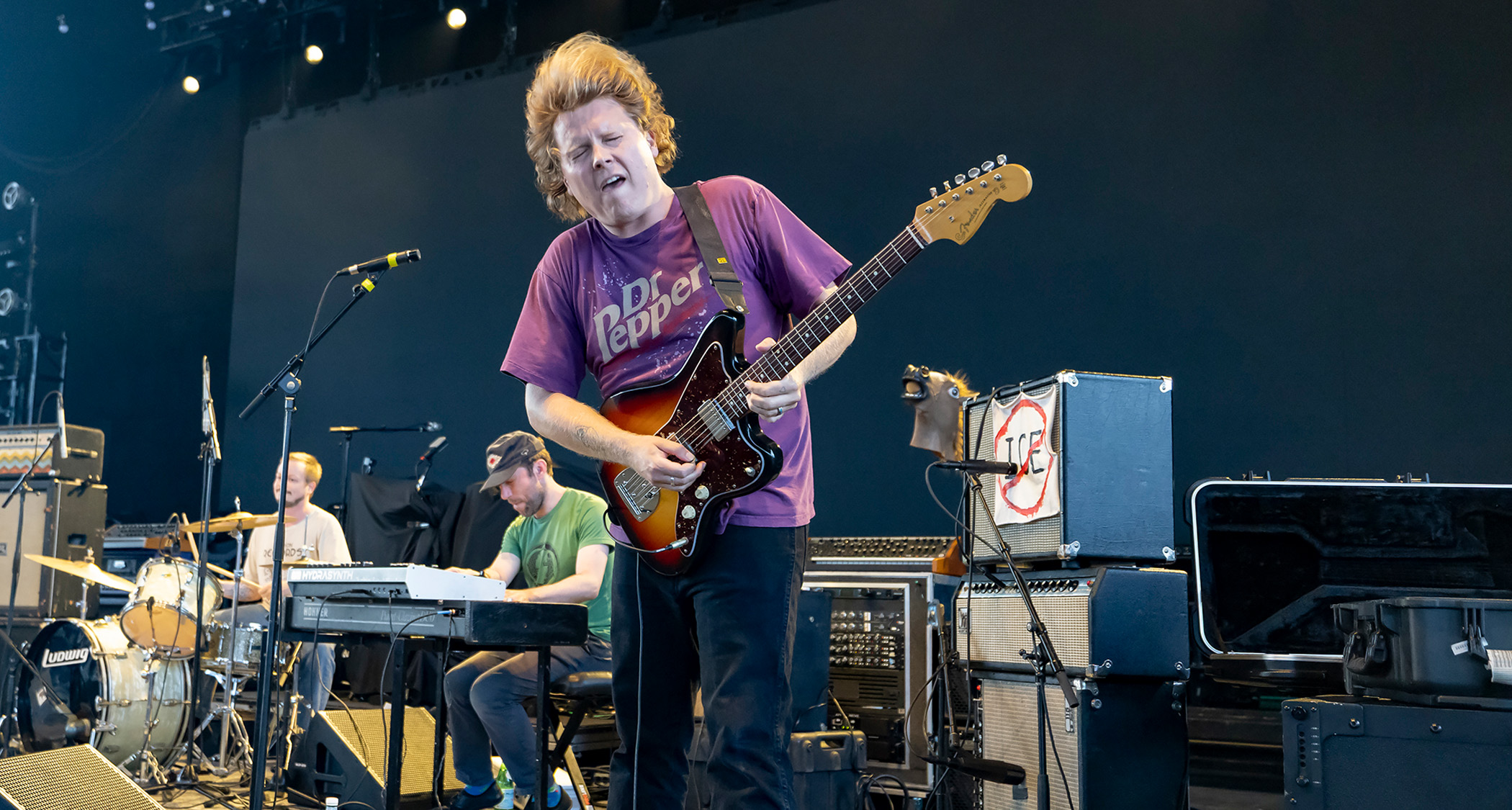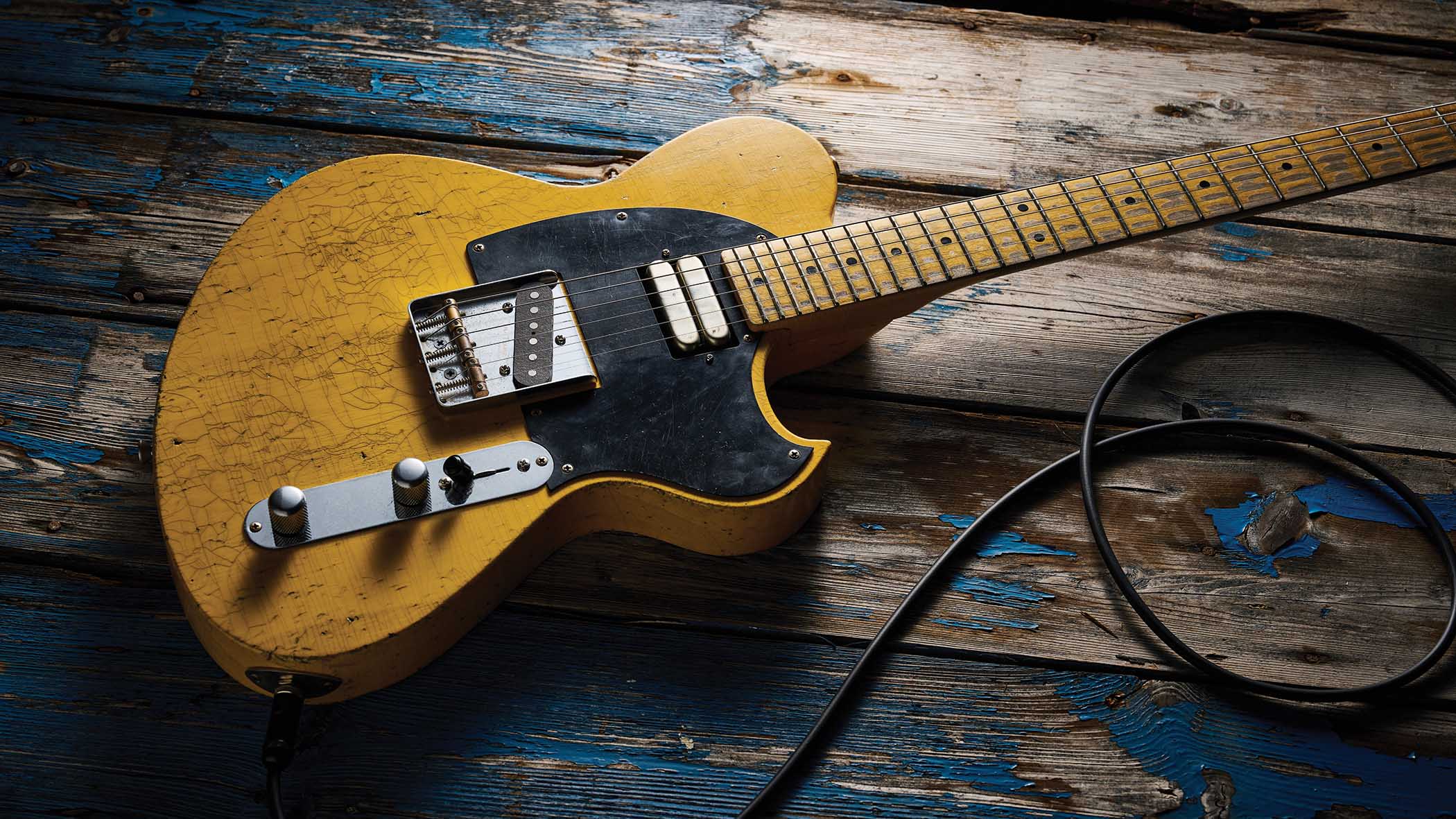“Everybody I know that’s a guitar head is like, ‘Why would you do that?’” The true confessions of Ty Segall – his blasphemous SG mod, exploding a vintage Gibson and why a “dying dinosaur” fuzz is one of his holy grail pedals
The always-surprising SoCal garage rocker talks fuzz, SG-based blasphemy and the peculiar benefits of not writing songs on guitar

All the latest guitar news, interviews, lessons, reviews, deals and more, direct to your inbox!
You are now subscribed
Your newsletter sign-up was successful
When Ty Segall and collaborator Matt Yoka started writing the lyrics to the former’s new and 17th solo album, Possession, the pair set off to present a series of “quintessentially American stories.”
To that end, Segall says the record’s acoustic orchestral-punk freakout Alive was inspired by the infamously cannibalistic Donner Party case of the mid-19th century before transforming into a broader look at man’s battle against the elements.
Shoplifter, a slow-building strummer that leads up toward a screaming three-way sax-off and a barbershop vocal section, empathizes with a sticky-fingered character going through economic turmoil – though Segall says he still feels guilty about the candy bar he boosted out of a convenience store when he was a kid.
One of its most relatable moments – for some musicians, at least – comes halfway through the shag carpet-lined ’70s rocker Fantastic Tomb, where Segall punctuates a laundry list of down-on-your-luck scenarios with a reveal that someone’s “last guitar just broke.”
There’s lived experience in the line, with the prolific musician telling Guitar World of the many cracked fretboards and headstock snafus he’s faced over the years. No horror story quite compares to the time he accidentally smashed his ’65 Gibson Melody Maker, a beloved gift he received after graduating college.
“I’d toured with it for about a year,” he says from his current home and studio base in South Pasadena, “but one show I had it leaned up against my amp, and [when] I went to go say hi to somebody, I stepped on the stage really hard and the guitar fell over and exploded. The headstock shattered into five pieces; it was not just a crack. That was sad.”
Though Possession occasionally erupts with psych-garage six-string bombast, it’s also one of Segall’s most purposefully toned-down guitar albums.
All the latest guitar news, interviews, lessons, reviews, deals and more, direct to your inbox!
I’ve got this SG that I customized… it’s blasphemy, I think; it’s a ’62, and it has P-90s, but I took those out and put some late-’60s humbuckers in there.
This time, inspired by the “golden era of studio layering” and the late-’60s work of the Beach Boys and Love, he opted to harness a more orchestrated, symphony string-based “thickness” unlike the “emotional chaos and noise” of more guitar-specific albums of his, like 2024’s Three Bells.
“I think this record is poppier. Less aggressive, less in-your-face,” he says. “I feel like I’d gotten into stacking guitars and arranging pretty wild parts on my last couple of records, and I didn’t want to do that this time. I wanted it to be stripped down when the guitar showed up.”
Taking the album title literally, what are your most prized possessions in your gear haul these days? And how much of it is on this record?
“A Les Paul has been my main studio guitar for close to 10 years now, but it only makes an appearance on one song. But I’ve got this SG that I customized… it’s blasphemy, I think; it’s a ’62, and it has P-90s, but I took those out and put some late-’60s humbuckers in there. Everybody I know that’s a guitar head is like, ‘Why would you do that?’ It’s just what I wanted! And it rules. So that’s the main guitar on this album.”
How did the humbuckers affect the bite?
“It’s dirtier. I like there to be a lot of gain on my guitars, and the P-90s weren’t that loud. But the SG is also cleaner than my Les Paul. It’s still nasty, but it’s not 100 percent nasty like the Lester.”
What’s happening with the guitar amps?
“I have one amp that I’ve been using for the past 13 years. It’s a ’72 Fender Quad Reverb, and it’s kind of a Frankenstein. I didn’t figure this out until two years ago, but it has a Peavey power transformer in it, so it’s weird and extra fried-sounding.”
There’s a harmony section in Another California Song that has these really gritty, vintage fuzz tones on it.
“Those are all done with [a Univox] Super-Fuzz. That’s one of my three favorite pedals in my studio. It’s the big, long orange one. It sounds like a dinosaur dying. [Laughs]”
Did any of the songs driven by electric piano and bass, like Hotel or Buildings, start out on guitar? Or were those always absent from the arrangement?
“The only songs I wrote on the guitar for this were Shoplifter, Shining, Alive and The Big Day. All of the other ones were written on the piano. But then I would take what I wrote on the piano and tweak it on the guitar, because I’m a pretty terrible piano player. It’s cool to be informed by choices on an instrument you’re not too familiar with.
“You can make decisions that are simple and pretty obvious when you don’t know what you’re playing. You’re like, ‘This sounds great! This is unbelievable! What did I just do?’ But then you realize, ‘Oh… I just went from E to A.’
“I’m at the point now with writing songs [on guitar where] I’m too aware of easy moves. I want to make things weird or interesting, so I get in the way of writing a simple, catchy song sometimes. Doing the piano thing on this record let me be simple and catchy again.”
This was the latest in a line of records made at your home studio, Harmonizer. How have you grown into the room over the years?
“Well, here’s the thing. I moved! So that version of the studio you’re referring to doesn’t exist anymore. I moved to another spot, though, and built Harmonizer II. I have all the same gear in there, but it’s about a third of the size of the old place.
“But with Possession, I knew I was moving so I was determined to make the biggest-sounding thing I could make in that room. I maximalized the sound. The ceilings were too short there, though. That was my biggest complaint.”
How did you go about making it a bigger‑sounding record?
“You just had to figure out which way to point the mics. The room was long, so that was cool. You could get far away [with the mic placement], but because the ceiling was short you got a lot of cymbals in the mix.
“There was a lot of harshness for drums, but for guitars you could do some cool stuff. I don’t know if you’d heard this record of mine called Three Bells, but there’s a lot of roomy guitar sounds. It sounds like it could be a delay, but it’s just the room.”
How are you going to pull off something like the three simultaneous sax lines on Shoplifter in concert?
“We might just cut all the horns! It’s easy to just go raw live, so we’ll probably electrify everything and make it loud.”
- Possession is out now via Drag City.
- This article first appeared in Guitar World. Subscribe and save.
Gregory Adams is a Vancouver-based arts reporter. From metal legends to emerging pop icons to the best of the basement circuit, he’s interviewed musicians across countless genres for nearly two decades, most recently with Guitar World, Bass Player, Revolver, and more – as well as through his independent newsletter, Gut Feeling. This all still blows his mind. He’s a guitar player, generally bouncing hardcore riffs off his ’52 Tele reissue and a dinged-up SG.
You must confirm your public display name before commenting
Please logout and then login again, you will then be prompted to enter your display name.





